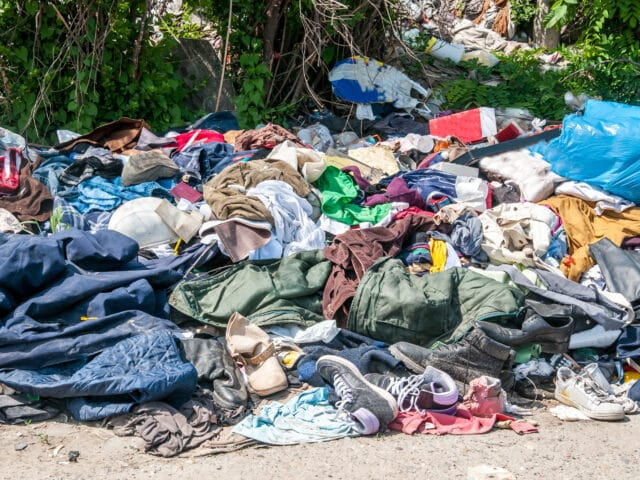

This site uses cookies for better user experience and analytics.

Buying secondhand clothing in bulk isn’t just good for your bottom line—it’s a powerful way to reduce your environmental footprint, support the circular economy, and create positive social impact. By sourcing wholesale thrift and returned garments, you help keep clothes in use longer, divert textiles from landfills, and reduce demand for new production.
The average U.S. consumer discards 81.5 pounds (≈37 kg) of clothing each year, with about 85% ending up in landfills or incinerated—that’s more than 11.3 million tons of textiles annually.
With only around 15% of discarded clothing being reused or recycled, bulk resellers play a critical role in diverting garments from waste streams. Every pallet or truckload of secondhand clothing purchased means fewer textiles entering landfill.

Manufacturing new textiles requires enormous amounts of water, energy, and chemicals. For example, making a single pair of jeans can consume thousands of liters of water and release significant carbon emissions.
When you source secondhand wholesale clothing instead of new products, you avoid these resource-intensive processes—helping cut pollution, save water, and reduce overall carbon output.
The circular economy is built on principles of reuse, repair, recycling, and longer product lifecycles. Research shows that a global shift toward circular practices could reduce emissions by 22.8 billion tons, nearly 39% of total 2019 global emissions.
Wholesale resale and reuse business models are vital to this shift—keeping garments in circulation rather than discarded, and maximizing their usable lifespan.
Secondhand supply chains create jobs in sorting facilities, redistribution centers, and textile recycling plants. Many bulk wholesalers partner with charities and nonprofits, ensuring that surplus inventory benefits both communities and the environment.
By participating in this supply chain, bulk resellers also help brands and retailers funnel unsold returns and overstock into reuse channels instead of waste streams.

NuSource operates as a circular wholesale partner, sourcing overstock and returned garments from brands and retailers. Their process includes:
By buying from a supplier like NuSource, you directly support landfill diversion, resource conservation, and the reuse economy.
What percentage of clothing ends up in landfills, and how does bulk resale change that?
In the U.S., about 85% of discarded textiles—roughly 81.5 lbs per person per year—end up in landfills or incineration, with only about 15% reused or recycled. Buying secondhand clothing in bulk captures garments that would otherwise be trashed, giving them new life and diverting them from waste streams. Companies like NuSource partner with charities, brands, and donation networks to rescue and redistribute quality apparel before it reaches landfill, enabling resellers to step into a circular economy and reduce textile waste sustainably
How does secondhand bulk buying reduce environmental impact compared to new clothing production?
Sourcing used apparel avoids the resource-intensive steps of new garment production, like fabric processing, dyeing, and shipping, which reduces pollution and carbon emissions. Life-cycle assessments show secondhand reuse often results in significantly lower water, energy, and climate impacts.
In what way does bulk resale support a circular economy?
Bulk resale enables what economists call the circular economy—reusing and extending the life of apparel rather than following a linear path of make-use-dispose. This reuse-centric model can reduce global emissions by billions of tonnes and supports sustainable business practices across the supply chain. Third‑party bulk resellers such as NuSource play a pivotal role in this circular model by sourcing overstock, returns, and donated apparel and channeling it into resale or upcycling paths.
Are there social benefits tied to bulk secondhand clothing purchasing?
Yes—sorting and redistributing secondhand clothing supports local jobs and, in many cases, charitable initiatives. Sustainable supply chains help create green jobs in textile sorting and reseller networks. NuSource operates with a social impact mission at its core.
Can bulk secondhand sourcing boost my brand’s sustainability credentials?
Absolutely, reselling curated secondhand inventory demonstrates environmental stewardship and supports consumer demand for eco‑friendly options. Retailers can highlight stories of garment reuse and waste diversion to attract and retain eco‑conscious customers. By sourcing from NuSource or similar sustainable wholesalers, retailers can share authentic stories of reuse, waste diversion, and circularity in their branding—turning sustainability into both a mission and a meaningful marketing advantage.
Get personalized responses to all inquiries.
Fully customizable ordering experience.
Discover a more rewarding partnership.
Feedback from other resellers like you.

Share: